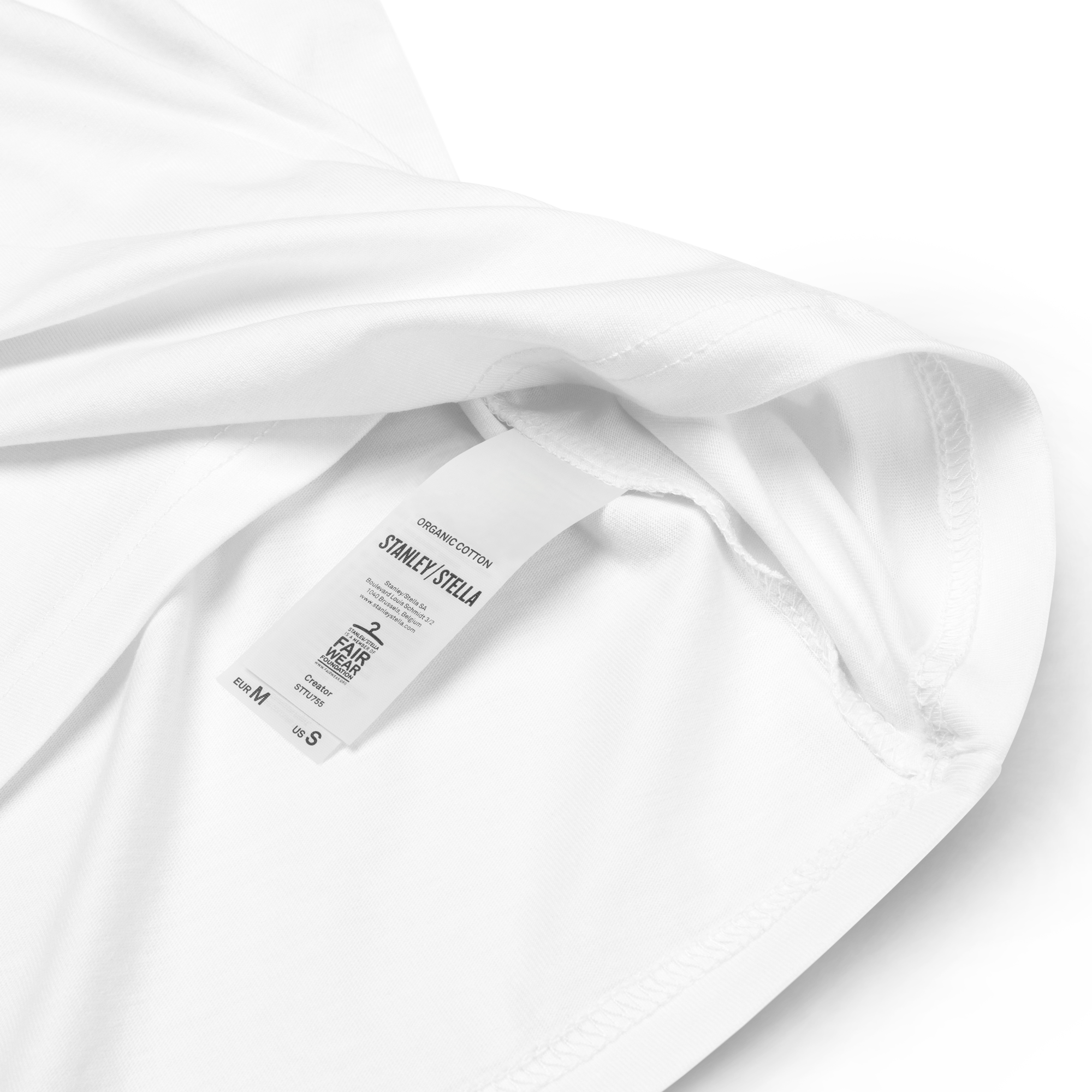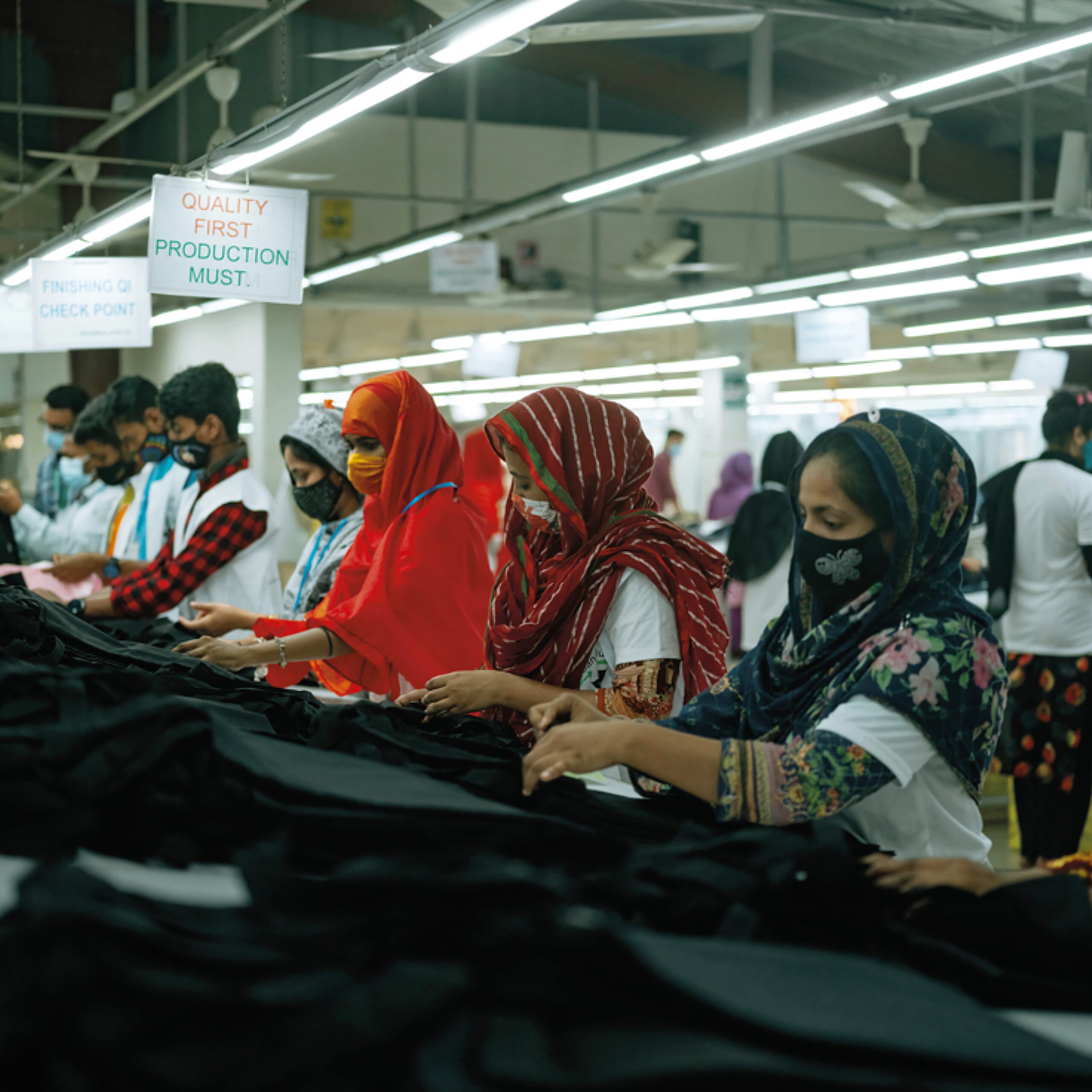
HOW WE CARE
Hey there, fashion rebels! Are you sick of fast fashion brands exploiting people and the planet for a cheap t-shirt? Look no further than Ministry of Cuteness and our partnership with the eco-warriors at Stanley/Stella. Our badass, punk-rock attitude doesn’t just stop at style – we’re proud to offer you the most planet-loving apparel on the market. Our eco-friendly t-shirts are made from 100% GOTS-certified organic cotton and recycled materials, and our entire production chain is certified and meets the highest industry standards. We’re revolutionizing fashion, taking the industry by storm, and proving that killer style and eco-consciousness go hand in hand. Are you ready to join the revolution?
What’s up

Ministry of Cuteness Stanley/Stella
We don’t just talk the talk, we walk the walk. Our partnership with the eco-warriors at Stanley/Stella means that we can deliver eco-friendly, modern clothing that respects people and the planet, with an extra dose of punk-rock attitude. We’re proud to offer you the most badass, planet-loving apparel on the market with our kick-ass eco-friendly t-shirts made from 100% GOTS-certified organic cotton and recycled materials like polyester and modal. But we don’t stop at just the materials – the entire production chain is certified by independent bodies and meets the highest industry standards. We’re taking the fashion industry by storm and proving that eco-consciousness and killer style go hand in hand, because let’s face it, if your t-shirt costs you $5, then someone, somewhere got exploited.

Revolutionizing Fashion:
Certified, Sustainable, and Raw
The entire production chain is certified by various independent bodies and meets several different industry standards. We believe that a fairer and more sustainable fashion industry is possible and that it’s our shared responsibility to continuously improve how we create. From the cotton field to the collection, to how the waste is managed, the objective is always to act with transparency for people, our planet, and for society.
Fibre selection has a considerable impact on how long a garment will last and how easily it can be recycled. This defines both the product quality and its environmental footprint. By choosing the highest quality raw materials, there is less need to blend them with other fibres. However, no material is perfect and there are many trade-offs to be made in finding the best solution.


Ethical Production,
Hardcore Monitoring
At Ministry of Cuteness, we don’t turn a blind eye to the production of our garments like other global fast-fashion brands. We take it upon ourselves to partner with suppliers who share our vision for a fair and safe working environment. Our supplier has teams on the ground in Bangladesh and China who work tirelessly to ensure strict social requirements.
A range of tools and policies has been implemented, including a daily overtime monitoring system to keep lead times realistic, a monthly sustainability observation report, a quarterly Supplier Sustainability Scorecard, and an annual Sustainability Audit Report tool. These tools allow to take a comprehensive approach to monitoring more than 100 social, environmental, and safety criteria at partner factories.
Let’s get technical
GLOBAL ORGANIC TEXTILE STANDARD (GOTS)
The Global Organic Textile Standard (GOTS) is the worldwide leading textile processing standard for organic fibers, including ecological and social criteria, backed up by independent third-party certification of the entire textile supply chain. This standard also sets limitations on other fibers that can be blended with organic fibers.
Global Recycled Standard (GRS) and Recycled Claim Standard (RCS)
The Recycled Claim Standard (RCS) and Global Recycled Standard (GRS) are international, voluntary standards that set requirements for third-party certification of recycled content and supply chain. The shared goal of the standards is to increase the use of recycled materials. The GRS includes additional criteria for social and environmental processing requirements and chemical restrictions.
Organic Content Standard (OCS)
The Organic Content Standard (OCS) is a certification for non-food goods that confirms the organic material presence in the final product. It also follows the supply chain from its source to the final product.